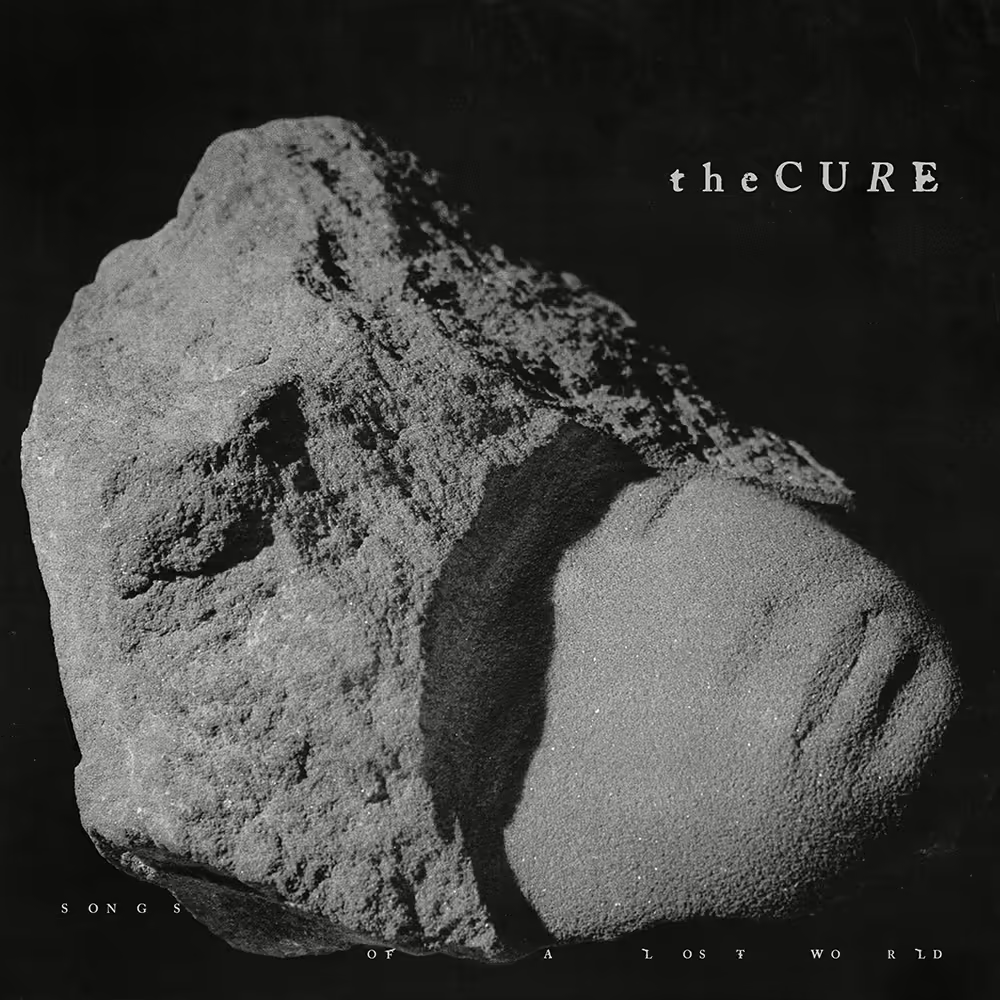Words by: David James Young
For the first three minutes and 20 seconds of Songs of a Lost World—The Cure’s first new album since 2008—listeners are thrust into a freefall of sorts. With ambient textures and atmospherics reminiscent of the band’s 1989 game-changer Disintegration, Jason Cooper’s slow-motion drum pattern is moored by Simon Gallup’s signature, steely basslines, while layers of Roger O’Donnell’s keyboards spiral around them. Despite the years of silence from this beloved English band, Alone makes it feel as though they’ve stepped through the wardrobe into Narnia, where no time has passed at all. The only thing missing is him.
Is it a peculiar choice to leave Robert Smith—the voice, face, and de facto leader of The Cure—out of these opening moments? Perhaps, but consider this twofold counterpoint: First, The Cure have never strictly adhered to popular music conventions, often opting for lengthy instrumental passages (like Disintegration’s timeless “Pictures of You”)—all by Smith’s own design. Second, and more crucially, it’s been 16 years. What’s another three minutes?
When Smith finally emerges, the final piece of the proverbial jigsaw falls into place. His mournful, idiosyncratic voice rises above the shimmering soundscape created by his bandmates and, canonizing the proverbial Lost World that surrounds it. What ensues across the band’s 14th album is what’s best described as a pristine paradox: a body of work that’s fresh and immediate, but also feels it could have easily been released at any point during the band’s 80s heyday.
Across its eight tracks, Lost World maintains its shadowy, shimmering atmosphere, with lengthier compositions that allow Smith’s arrangements to stew—and, tellingly, his lyricism to resonate. The harrowing “Warsong” opens with what sounds like an accordion wheezing its final notes, while a wash of droning guitars pushes the dirge-like procession forward, building to Smith’s anguished confessional: “I want your death / You want my life.”
Elsewhere, Cooper drives a full-fledged 80s throwback on “All I Ever Am,” with booming tom flams and a thwacking gated snare that would have fit seamlessly into some of the band’s brighter moments from 1987’s Kiss Me, Kiss Me, Kiss Me.
Smith is at his miserable best on the standout track, his evergreen wail lamenting his “weary dance with age”—a line that resonates deeply, especially considering he’s now 65. It hurts to consider that The Cure won’t last forever in physical form. As bittersweet as it is, songs like this will ensure the band’s legacy remains intact long after the members are no longer with us.
That, in itself, may be the most important aspect of Songs of a Lost World: its reaffirmation of The Cure’s legacy, while simultaneously adding to it. How many bands from The Cure’s era still have the ability to create new material worthy of standing alongside the best of their catalog—hell, to create new material at all? Even before their long absence from the studio, Smith and company were delivering fascinating late-career efforts, like their criminally underrated 2004 self-titled album and the spellbinding 4:13 Dream. Every new album from The Cure is an event, and they’ve yet to tarnish their impeccable reputation.
As the freefall that began with “Alone” finally lands back on Earth in the sprawling 10-minute “Endsong,” you’re grateful to have taken this journey with the band. You might not have known where you were headed when you started, but The Cure has never led you astray—and they still haven’t.

